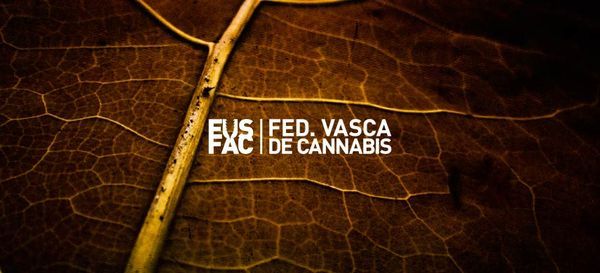- The Plenary Session of Court II of the Spanish Supreme Court, along with three individual votes, has made a ruling on the case of the Ebers (Bilbao) Association of Hemp Studies and Users in relation to the growth and shared consumption of cannabis. Dinafem already disclosed the ruling in July. As such, the appeal made by the Public Prosecutor has been upheld and the five members of the association have been sentenced, as perpetrators of a crime for the illegal growing of drugs, to jail time ranging between 3 and 8 months. Owing to the important information it contains, we have reproduced below the official announcement made by EUSFAC (Federation of Associations of Cannabis Users in the Basque Countries). Their statement analyses the harsh sentence.

WE ARE DISAPPOINTED AND PERPLEXED WITH A LEGAL DECISION THAT HARMS THE PUBLIC HEALTH THAT IT CLAIMS TO PROTECT. THIS RULING INDIRECTLY CONDEMNS, STIGMATISES AND MARGINISES HUNDREDS OF THOUSANDS OF PEOPLE THAT USE CANNABIS THROUGHOUT THE STATE.
EUSFAC supports the decision of the EBERS association to appeal the sentencing ruling at the Constitutional Court and the European Court of Human Rights. We also agree with the EBERS association requesting that the case is annulled, as it is evident that fundamental rights have been violated, particularly given that extremely serious procedural errors have been committed throughout the trial, which is inadmissible in a State of Law. The appeal will be created in time and in the appropriate manner, and legal experts, lawyers and academics from throughout the State are all working together on it, which demonstrates the significance of the incorrect decision taken by the high court.
The Supreme Court sentence has created a schism of legal insecurity around the so called phenomenon of the "shared consumption of cannabis", among hundreds of collectives of users, which are organised and transparently legal within the Spanish State's administrative area. Across the representation that we have, the EUSFAC believes that the Court has committed a serious act of irresponsibility with its decision, by refusing to define, specify and set the criteria that delimit the penal significance of activities that the bodies we represent have been carrying out for years. This situation shows that within the Spanish State, judicial rulings are not taken in compliance with the changes that have developed and have become part of social reality.
Following initial analysis, it is evident that this Supreme Court ruling cannot be applied to all cases where associations of cannabis users are being judged, and it should be remembered that the magistrates of the Supreme Court have backed away from the possibility of outlining criteria. Therefore, it continues to apply penal law on a case by case basis, each with their different context and particular characteristics. In no way can this be interpreted as making the activity of Social Cannabis Clubs illegal, as they (administratively) are duly registered, under the auspices of constitutional Association Law, and their activity, among other values worth highlighting, is absolutely transparent. They collaborate with Institutions with a view to attaining official regulation, along with legislative changes, that could reduce external and internal legal insecurity created by this phenomenon, and also do so with the basic principle of respect for current legislation.
EUSFAC urgently calls upon all agents, specifically political parties, as they are the ones that hold representation in public institutions. During the next legislature (from 20 November onwards) they should certainly design the necessary "tools" to tackle, legislate and regulate the consumption of cannabis, with rights and obligations. This should always be done with caution, and employing the responsibility and social intelligence that the issue requires".
San Sebastian, 6 October 2015. Source: EUSFAC



Comments from our readers
There are no comments yet. Would you like to be the first?
Leave a comment!Did you like this post?
Your opinion about our seeds is very important to us and can help other users a lot (your email address won't be made public).